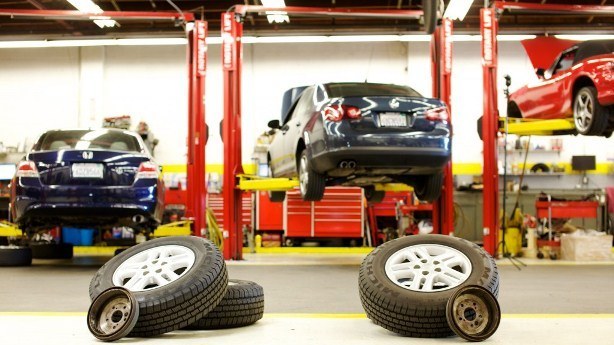All Categories
Featured
Brakes are arguably the most essential security function of any kind of vehicle. Without reputable brakes, even one of the most powerful auto can come to be a danger when driving. That's why normal brake evaluations are a must for guaranteeing your lorry stops when you require it to. Following a proper brake examination schedule can not only keep you safe but also assist you stay clear of expensive repair work. Here's an in-depth guide on just how to effectively evaluate your brakes and what to watch out for.
- The Significance of Regular Brake Inspections. Brakes undertake constant wear and tear with every use, whether you're driving at high speeds on the highway or cruising via city streets. In time, brake pads, blades, and various other parts put on down, which can impact stopping efficiency. Without routine assessments, you might not discover the progressive decline in effectiveness till it's also late.
Routine brake examinations allow you to capture problems early, making certain that your brakes remain responsive, reliable, and safe. Prompt examinations can also conserve you cash by addressing small issues prior to they end up being expensive repair services.
- Common Indicators That Your Brakes Need Attention. While regular brake assessments are essential, there are some indication you can keep an eye out for to recognize when it's time to set up a check-up:
Squealing or Grinding Seems: High-pitched squeaks or grinding noises when applying the brakes are commonly signs that your brake pads are used out and need replacement. Vibration or Pulsation: If you feel resonances in the guiding wheel or the brake pedal, it can indicate deformed rotors, which might require resurfacing or replacing. Soft or Squishy Brake Pedal: If the brake pedal feels abnormally soft or mushy, there may be air in the brake lines or a trouble with the master cylinder. Drawing to One Side: If your vehicle pulls away while braking, this could be caused by uneven brake pad wear or a concern with the brake liquid. Boosted Stopping Range: If it takes longer to stop than common, it might suggest that the brake pads are put on, the fluid is low, or the rotors are damaged. If you discover any of these symptoms, it's finest to have your brakes evaluated instantly.

- Trick Parts Checked Throughout Brake Inspections. During a brake assessment, a service technician will examine numerous crucial components of the stopping system to guarantee whatever is working correctly. Here are the crucial components included:
Brake Pads: The most common factor for inadequate braking performance is worn-out brake pads. Checking the thickness of the pads is a priority throughout every inspection. Brake Rotors: Blades need to be smooth and free of grooves or cracks. Any considerable damage to the rotors could lead to jeopardized stopping performance and irregular pad wear. Brake Liquid: Reduced or polluted brake fluid can hinder stopping performance. The technician will certainly check the liquid levels and top quality and change it if needed. Brake Lines and Pipes: Brake lines ought to be devoid of leaks or fractures. Any type of damages to the lines can cause loss of brake fluid, resulting in brake failing. Brake Calipers: The calipers apply pressure to the brake pads. They ought to be examined for indicators of wear or leakages to guarantee they are operating properly. Frequently inspecting these parts assists keep your brake system in peak problem, enabling you to stop your vehicle securely and successfully.
- Exactly how Often Should You Have Your Brakes Examined? The general recommendation is to have your brakes checked a minimum of annually or every 12,000 miles, depending upon your driving routines. Nonetheless, particular driving problems might require even more regular evaluations:
Hefty Website Traffic: If you typically drive in stop-and-go web traffic, your brake pads will wear down much faster. Hill Driving: Driving on high roadways requires more regular stopping, which can cause your brakes to put on quicker. Towing or Hauling Heavy Plenties: If you regularly bring heavy loads, your brakes will certainly experience more anxiety and need more regular evaluations. If you observe any one of the warning indications stated earlier, do not await the next scheduled examination-- have your brakes checked promptly.
- The Repercussions of Ignoring Brake Inspections. Disregarding regular brake inspections can result in severe consequences. A falling short brake system might result in lowered quiting power, which boosts your danger of accidents. Ignoring brake maintenance can additionally cause much more pricey repair services. If you postpone replacing used brake pads, the damages might expand to the blades, leading to the requirement for blades replacement, which is a far extra costly repair.
In the most awful case, driving with damaged brakes can lead to finish brake failure, putting you and other chauffeurs in danger. Normal brake evaluations are a tiny financial investment that can conserve your life and prevent costly repair services.
- Verdict: Stay Safe with Regimen Brake Inspections. Brakes are not something you intend to take chances with. A trusted stopping system is essential for safe driving, and normal brake assessments are an easy means to make sure that your car stops when you need it most. By remaining on top of brake maintenance, expecting alerting indicators, and having your brakes examined at the advised periods, you'll shield both your vehicle and your security.
Don't wait until your brakes begin to stop working-- routine regular brake inspections and keep your lorry in optimal problem for many years ahead.
Latest Posts
Enhancing Security and Convenience with Automatic Gates from Montana Fence
Do Not Overlook These Signs: Is Your Roof Trying to Tell You Something?
Transform Your Home with High Quality Flooring Solutions
More
Latest Posts
Enhancing Security and Convenience with Automatic Gates from Montana Fence
Do Not Overlook These Signs: Is Your Roof Trying to Tell You Something?
Transform Your Home with High Quality Flooring Solutions
